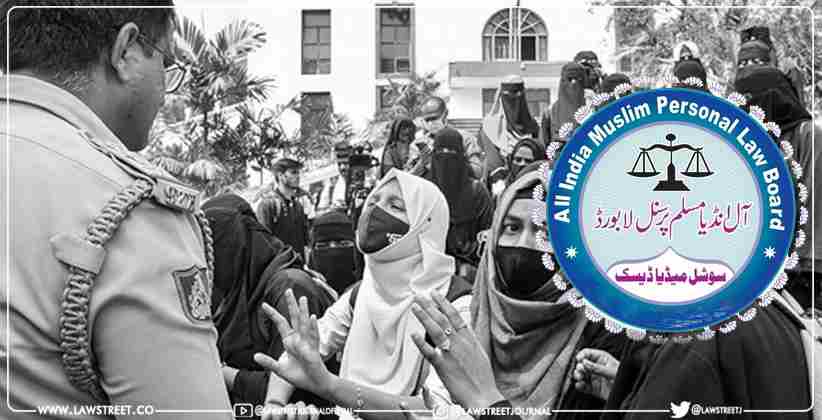All India Muslim Personal Law Board has approached the Supreme Court against the Karnataka High Court's March 15 judgement, which upheld the ban on wearing of hijab in schools and colleges in the state, saying it was a direct discrimination against the Muslim girls.
The private body, registered as a society, claimed the judgement ignored the doctrine of reasonable accommodation and unnecessarily went on to consider the principle of essential religious practice when questions of right to faith and others were involved in the matter. It also contended as far as interpretation of scriptures in the holy Quran are concerned there is a consensus amongst religious scholars of all schools of thought namely, Hanafi, Maliki, Shafai and Hambli that practice of hijab is wajib (mandatory), a set of obligations, which if not followed, he/she will commit sin or become a sinner. Wajib has been kept in the First Degree of obedience, it claimed.
"The High Court has laid too much emphasis on propositions which results into discrimination, exclusion and overall deprivation of a class from the mainstream public education system, apart from the fact it seriously encroaches upon an individuals sacrosanct religious belief," it claimed.
The society, working for protection of Muslim personal laws, also pointed out, post 2017, in two judgments, namely K S Puttaswamy, (nine-judge on right to privacy) (2017) andKantaru Rajeevaru (five-judge) (Sabarimala Review, 2019), there has been a positive change in the legal regime for upholding individual rights against the State in relation to rights flowing from Article 21 as well as under Article 25 and Article 19(1)(a) of the Constitution.
The joint petition, also by Munisa Bushra and Jaleesa Sultana Yaseen, contended that laying too much emphasis on bringing "uniformity" in the dress without accommodating a person of one religion "to cover her hair with a piece of cloth" is travesty of justice.
A number of other petitions have been filed in the top court, which had earlier declined to give urgent hearing in the matter.








